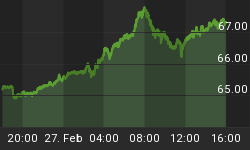The United States has 6% of the world's population and 6% of the land area, but has a global influence far greater than any country in history. John Steele Gordon attributes this influence to the dynamic American economy, and in his new book "An Empire of Wealth" examines how the U.S. economy now accounts for 30% of the world's gross domestic product.
While the U.S. economy is huge, and performed much better than other countries, the historical booms and busts have been extreme - in part due to the regulatory structure in the banking sector adopted in the early 1800's. Gordon's book examines the historical development of the American economy and why it grew, from the first colony at Jamestown to the recent frenzy in the technology sector - a complex subject that he makes incredibly entertaining.
Because the U.S. was new - literally carved out of virgin lands with immigrants from various cultures - the government did not have long established monopolies, systems of privilege, or embedded wealth to protect. This gave the U.S. an immense advantage according to Gordon, since the government was much less likely to adopt protective tariffs, taxes, or regulations which would interfere with economic growth. The focus on free trade, and the revolutionary theory for that trade benefited all involved, is one reason for the strong economic growth of the early colonies and states as compared to the rest of the world.
Central Banking and Federal Regulation
With the increasing financial needs of the federal government in the late 1700's, Alexander Hamilton realized that the lack of liquid capital, investment funds, and problems financing the public debt were major impediments to economic growth. He also recognized that allowing the federal government to issue paper money would result in politicians printing money at the expense of long term economic health - a concern that has proven correct when looking at the history of paper money since Hamilton's day.
To resolve the financial problems of the federal government Hamilton proposed a central bank in 1790, the Bank of the United States, modeled after the Bank of England. The central bank was to facilitate transactions, loan to the government and other banks, and control the money supply of the new nation. And the bank was to be under private direction, not controlled by public interests who would destroy the value of the currency.
Hamilton's Bank of the United States proved to be a resounding success, and the United States briefly enjoyed a money supply and financial sector that was more stable than most of the developed European countries.
What Hamilton did not expect was the political opposition to the Bank of the United States by Thomas Jefferson, whose vision of America was one focused on farming and agriculture, not on industry and manufacturing. Jefferson was appalled at the financial speculation that occurred during the period, and the lack of attention to the agricultural sector. When Jefferson's party was voted into power in 1800 they dismantled the Bank, replacing it with no federal or regulatory banking system.
The end result was that money supply and liquidity in the U.S. after 1800 was extremely volatile. While the economy grew at an astonishing rate, it was subject to an unending cycle of booms and busts whose amplitude would far exceed anything seen elsewhere - making the U.S. economy very unstable compared to others. It would be more than a century before the stabilizing influence of central banking concepts were once again introduced to the U.S.
The Erie Canal & Economic Opportunities
In a system without a central bank the 'empire of wealth' grew in enormous but uncontrolled bursts in the 1800's. Gordon chronicles the opening of the Erie Canal as part of the story of growth. It reduced the cost of moving a ton of flour from Buffalo to New York from $120 to $6. It also reduced the time in transit from three weeks to six days. The Canal opened up the Midwest to Eastern markets, and likewise funneled trade to New York - which became the economic powerhouse it remains today.
Gordon laces the book with numerous examples where governmental or technical developments influenced the U.S. economy and enhanced economic growth and business development - and he explains the significance such changes had on various players in the U.S. economy.
From the book's topic you would expect this manuscript could be quite dull - but to the contrary anyone interested in U.S. history, politics, finance, or the development of our capital markets will find it quite entertaining and informative. With the robust economic growth this country has seen historically, the book makes it clear we are very fortunate to live in the U.S. - and to share in the wealth and opportunities such expansion has created for us and our children.















